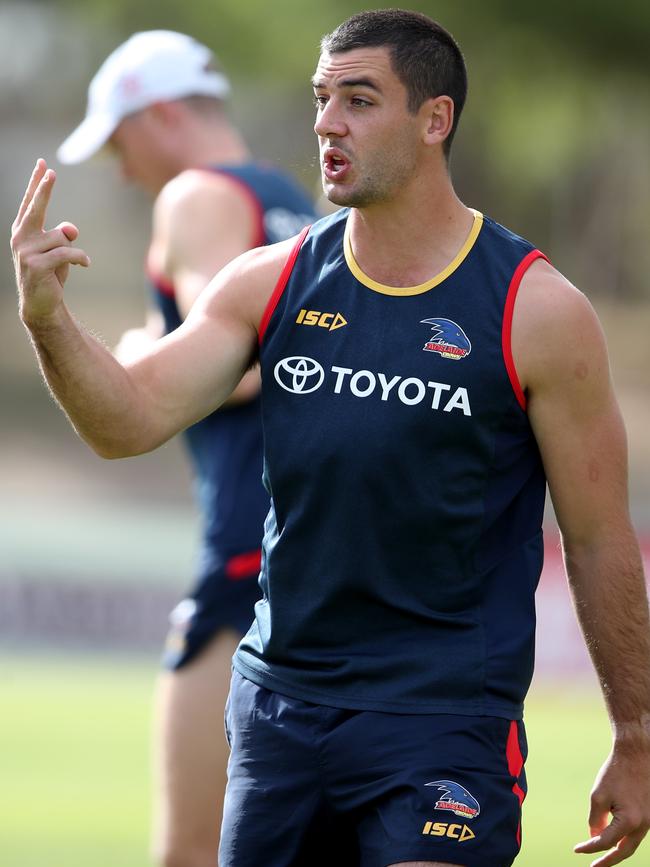Why this Adelaide doctor wants to understand Crow talk
A leading Adelaide linguist is investigating how the language used by the nation’s best AFL players affects on-field performance and its potential role in future game-day analytics. So who’s got the biggest mouth?
SA News
Don't miss out on the headlines from SA News. Followed categories will be added to My News.
As part of “radical” new research, a leading Adelaide linguist is investigating how the language used by the nation’s best AFL players impacts on-field performance and its potential role in future game-day analytics.
University of South Australia’s David Caldwell believes players can improve their game by better understanding how they talk to each other out on the ground.
“A lot of the data in sport analytics comes from looking at things such as GPS tracking, how far you run, how hard you kick the ball, how many times did you get the ball,” Dr Caldwell says.
“(But) there are other ways we can get better, be more competitive and as a linguist, what I am interested in is looking at it from the context of communication — how successfully are players communicating and how does this relate to their success on the field itself?
“(I’m looking at) bringing together methods from linguistics and sports analytics … I see it as an untapped space.”
As part of a pilot program, Dr Caldwell “mic’ed up” Adelaide Crows players during a series of pre-season training sessions last year.

Dr Caldwell says he wanted to measure several aspects of players’ on-field communication, including when, where and how they talk to each other.
He says the results reveal experienced players, such as Josh Jenkins, are using language very differently than their less experienced teammates with 60 per cent of the key forward’s talk on ground described as “commanding and instructional”.
“The more experienced players are more instructional, they ask fewer questions, they are much more certain and clear, they’re less repetitive, they’ll say it once, maybe twice where some of the less experienced players are repeating a name multiple times,” Dr Caldwell says.
The lecturer in English language and literacy believes there is good value in players listening back to what they say on ground, and indicators for coaches too in highlighting potential team leaders.
“It hasn’t been methodised in the past (but) it’s like putting a GPS on, or becoming aware of the velocity and distance of kicks, once you can bring (how you use your voice) into consciousness … you will get better at doing it,” he says.
“It’s not just (about) individuals speaking but communication across the field … you can get real insight into a moment in a game, whether the team is down or up, whether the backline for instance is bonding well together, or not. Has the team stopped talking?
“The good teams talk which helps from a pragmatic perspective and is also an indicator of team morale, team support and team work.”
Dr Caldwell hopes next to do longitudinal work, having players ‘mic up’ over an extended period, even multiple seasons as well as work with AFLW players but admits there is a level of hesitancy around his work.
“A lot of the language on-field is what we call anti-language, it is taboo stuff not actually intended for other people (outside the team) to hear ... clubs, including the Adelaide Crows, have their own unique glossary of terms and codes,” he says.
So, will he share some Crow talk?
“No, it is a secret code, it is about building solidarity … what I can say is, it is a lot of game specific strategy talk,” he says.


